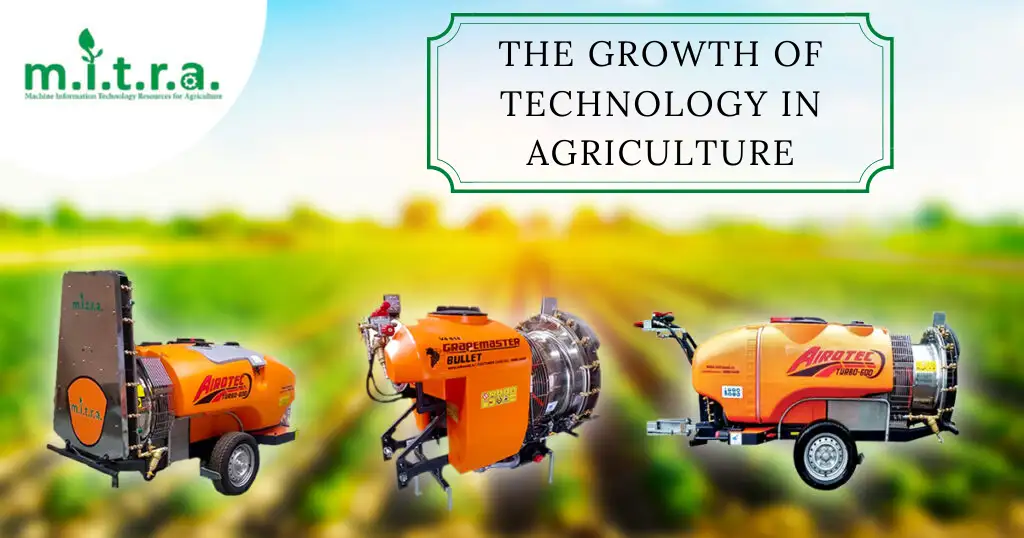We’ve seen technology do amazing things in a variety of sectors around the world, and agriculture is one of the best examples.
The agricultural sector has risen to the top as a result of tremendous technological advancements that have benefited it. When we equate ancient farming eras to today’s century, we would be astounded at how technology has played such a significant role. Technology has created numerous opportunities for the agriculture industry, especially farming. Farm machinery productivity allows growers to produce more systematically. The population has decreased dramatically as a result of technological advancements, which is a good thing for producers.
Now, let’s look at one of the technological scenarios. How smartphones have made a significant difference. Farmers had to fly to buy fertilizers, seeds, and other supplies in the beginning. But now, without having to go anywhere, it’s only a click away.
Farmers have been able to track and cultivate the land, sowing, and other aspects of farming thanks to computerized farming.
Technology’s Advantages in Agriculture
Farmers have always engaged in farming and it is what they are familiar with and recognize. Despite the large workforce, transportation, fertilizer and pesticide spraying, and many other tasks must be completed by them.
Still, thanks to technological advancements, all of those factors have been reduced.
- Modern computers are used to transport people and goods.
- Water use has decreased.
- Farmers will forecast the weather and plan their work accordingly.
- Farmers are now able to sell their crops.
- Farmers will now market their goods via the internet.
- Farmers may use cell phones to monitor and analyze their crop data.
Facilities from technology that has been helpful towards agriculture:
1. Artificial Intelligence (AI): AI has simplified everything for farmers to predict the atmosphere, determine the kind of soil that crops need, and provide solutions.
2. Mobile Application: Smartphones are becoming increasingly popular, and for farmers, they have proven to be a valuable resource. Farmers may use it to place orders, monitor them, and communicate with them.
3. Tracking by satellite images: Farmers can use this facility to learn about environmental conditions and how the oceans are doing, but most importantly, it can help you check on your crops and see if they are still on the ground.
4. Drones: Farmers will use agricultural drones and spray crops to see whether they’ve been infected or not. Drones may also have or show detailed soil erosion as well as see some dry areas on the ground.
5. Biotechnology: Farmers can cultivate crops on dry and desert lands with the aid of biotechnology. It’s a kind of technology that helps farmers work less. It’s never easy to grow crops on dry land, but it’s now possible thanks to biotechnology.
Future of Technology in Agriculture:
The presence of technology in agriculture is still growing on a large scale, and new innovative ideas are expanding daily. But what intrigues everyone and especially the farmers, is what facilities and technology will be available in the coming years.
With AI in the picture and Nano-technology introducing itself in the farming industry, Farmers will be busy, not for doing any hard work but gaining an understanding of newer technologies.
Some of the Facilities that have the potential to show more significant response in farmers ahead in future:
1. Crop Insurance:- Crop Insurance is going to be one of the necessary facilities that technology can provide to farmers. Most of the time, farmers are intense situations due to crops getting destroyed in heavy rains. Crop Insurance will prevent the loss. Even if the crops get destroyed, it doesn’t matter how the crops get destroyed.
Insurance can also have a heavy impact as the weather forecasting, and satellite images will show any upcoming risks so farmers can be aware of the situation.
2. Digitized Retailing: Farmers sell their products to local businesses who are most likely running local Kirana stores, which is another way to increase the product demand, which favors farmers. In the coming years, all these stores will be digitized, helping the farmers do more transparent business.
3. Nano-Technology: Nano Technology will help farmers reduce the amount of waste that occurs due to fertilizers.
4. Soil Testing: Soil testing will help farmers to detect what nutrients the soil needs to support the crops to grow. Soil testing on the land will be much faster than what farmers will do to understand the soil’s situation.
5. Micro-financing: Micro-financing will play a significant role in the income-related sector of farmers. It will help poor household farmers to get all the basic needs of every farmer in their house.
FINAL WORDS:
The present and future of technology in agriculture will be huge, and the impact it will have will change the industry’s course. Farmers may get the chance to avoid their hard work, which they used to do traditionally, but it does not mean they won’t have to work at all.

